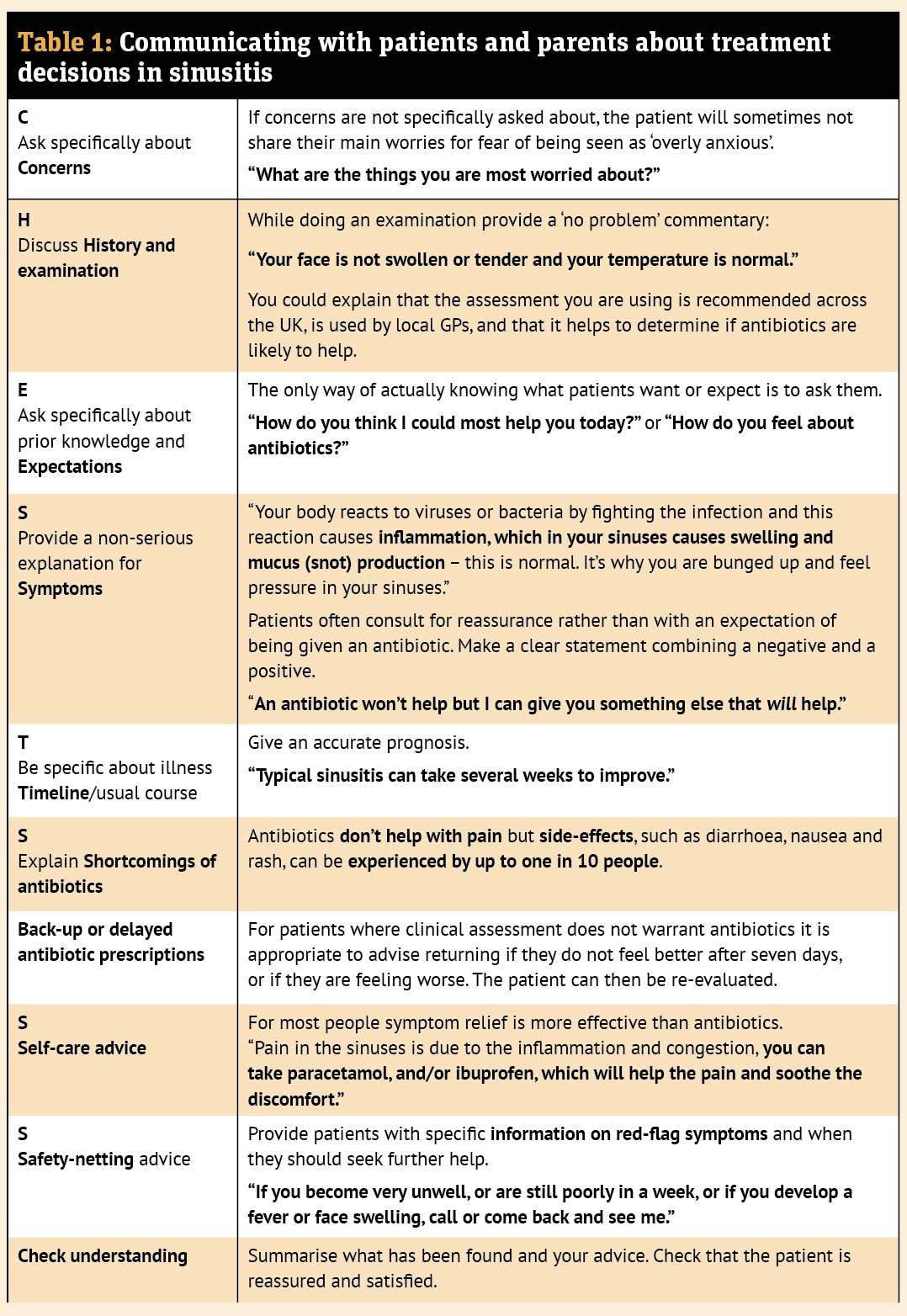Symptom relief
When the features associated with infection are not present, treatment should be aimed at symptom relief. NICE advises considering paracetamol or ibuprofen for pain or fever.
One of the issues in treating sinusitis is that for many OTC or home remedies, there is a lack of high quality evidence, often with few randomised clinical trials and low quality designs. Hence NICE’s comment that patients with sinusitis “may wish to try self-care with nasal saline or nasal decongestants to relieve … congestion, but it should be explained that there is not enough evidence to recommend these. It should be explained to people that no evidence was found for using oral decongestants, antihistamines, mucolytics, steam inhalation or warm face packs in acute sinusitis”.
Patients may have found specific preparations or remedies helpful in the past and their personal experience is important. The NHS A-Z information on sinusitis advises the following: “A pharmacist can advise you about medicines that can help, such as: decongestant nasal sprays or drops to unblock your nose (decongestants should not be used by children under six years of age); salt water nasal sprays or solutions to rinse out the inside of your nose. You can buy nasal sprays without a prescription, but they should not be used for more than one week.”
We introduced how the Royal College of General Practitioners uses the CHESTSSS consultation framework in the Sore Throat Part 2 CPD module (PM February issue). In Table 1 below, we show how CHESTSSS could be tailored to a consultation about sinusitis.

